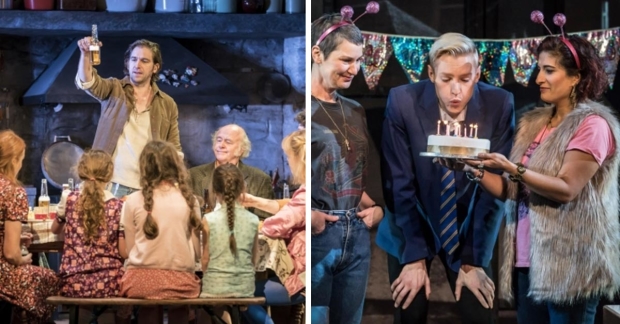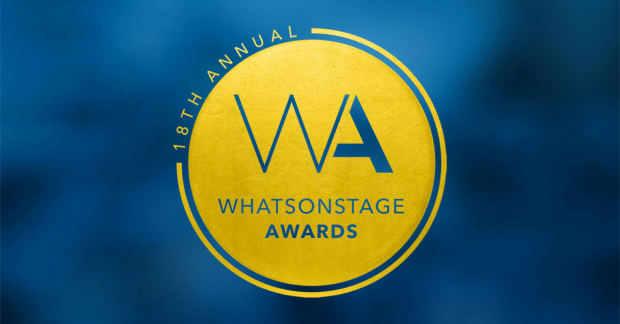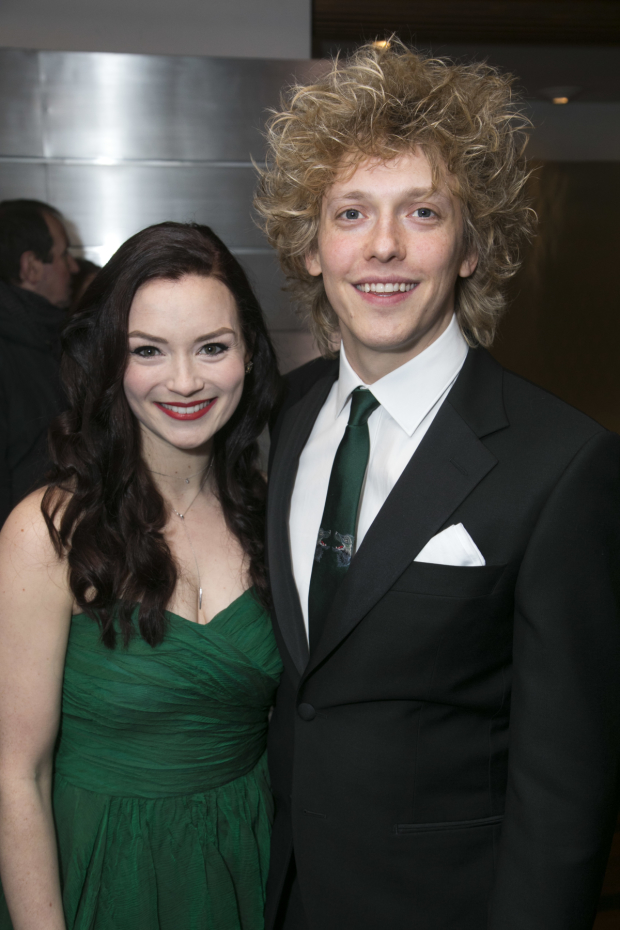The WhatsOnStage Awards aligned with critical acclaim and it shows the West End is working

© Johan Persson
Leaving aside last year's Harry Potter love-in – a show that, rightly, dominated on all fronts – I can't remember the last time the popular vote of our WhatsOnStage Awards threw up so many of the same winners as other theatre awards. The Ferryman, Robert Icke's Hamlet and Everybody's Talking About Jamie have all picked up prizes from the Evening Standard's judges and the Critics Circle's members, and now, also, from you: the audience.
That's rare. Before you reach for your pitchforks, I'm not saying that you, Joe Public, tend to get these things wrong – though you've made some strange calls over the years. In fact, quite the opposite: almost all awards, judged or otherwise, leave me scratching my head and cursing the taste of the theatre gods. But there is something curious about this apparent overlap of critical acclaim and popular appeal. For better or worse, the two aren't always aligned. When they are, it's worth asking why.
The Awards this year suggests a marriage between quality theatre and audience reach
To win a WhatsOnStage award, aside from crowd-pleasing brilliance, a show needs to find a sizeable audience. These aren't the gongs for niche new plays in small studio theatres – and that's totally fine – but those are often the shows that win critics' hearts. Think of Annie Baker's The Flick, The Effect by Lucy Prebble or Nick Payne's Constellations – all prize-winning plays, probably modern classics, in small spaces. None of them had a hope of a WhatsOnStage award. They'd never have gotten the numbers.
But what's so cheering about the crossover between our contenders and other awards' is that it suggests a marriage of quality theatre and audience reach. The best shows are being seen by the biggest audiences.
The Ferryman, named best new play last night, has already played eight months at the 986-seat Gielgud Theatre, following a short Royal Court run. When it closes in May, it will very nearly have racked up a year. When was the last time top-notch new writing managed that? Meanwhile, our best revival, Robert Icke's Hamlet, was as rigorous a reading as I can remember. It spent a summer season playing to 800 people a night in town.
The same's true of our best new musical, Everybody's Talking About Jamie. Time was it would have settled for its slew of stand-out reviews in Sheffield. Instead, thanks to producer Nica Burns' (leap of) faith, it's nestled in for an extended West End run until October. Given its momentum, don't be surprised to see this new British musical stick around longer.
My point is that the West End is working, and working well. One could point to a fair few of last night's contenders (Ink, Labour of Love and Oslo) and cheer the fact that great theatre – serious theatre – is thriving in the heart of town.
My point is that the West End is working, and working well
That hasn't always been the case, but these plays are all proving themselves by pulling audiences in, night after night. Together, they're demonstrating that there is a sizeable market for substantial, thought-provoking, challenging theatre, and in doing so, they're lay the foundations for more. Producers are prepared to take bigger risks.
This hasn't simply happened overnight – far from it. Instead, it's the product of a slow cultural shift, one that's moved the goalposts of possibility for commercial producers. A decade ago, you couldn't move for star vehicles, jukebox musicals and long-running tourist traps. Anyone trying to transfer a new three and a half hour faux-Irish family drama into the West End would have been laughed out of town.
Not any more – and a lot of that has to do with The Ferryman's producer Sonia Friedman, deserving winner of our Equity Services to Theatre prize last night. Her biggest hits may have brought her to public consciousness, Harry Potter in particular, but she's spent years balancing dead certs with big risks. Bit by bit, drip, drip, drip, that's overhauled the West End.
A decade ago, she transferred Polly Stenham's astonishing debut That Face from the tiny Royal Court Upstairs to the sizeable Duke of York's – a brave play, but even braver producing. It was the first properly new play Friedman transferred into town. Slowly, others followed – Clybourne Park, The Mountaintop, Jerusalem – then more and more: Chimerica, The Nether, King Charles III.
A lot of her shows, it's rumoured, lost money, but they were balanced out by big hits. That's by the by. The point is, just as a farmer cultivates their soil – the better the conditions, the better the crop – Friedman has slowly altered the landscape. She's not done it alone: the National's self-producing played its part, as did Donmar West End, Michael Grandage and Jamie Lloyd's companies and many more. But Friedman more than most and her reward, 10 years on, is an audience that's willing to take risks of its own. New plays are, once again, a mainstay of the West End; some are even starting straight there. Better still: more people are seeing better theatre, as popular taste matches critical acclaim.














